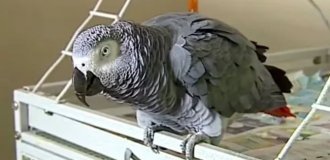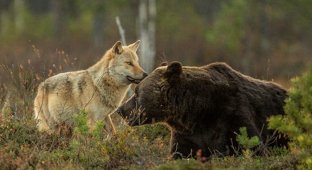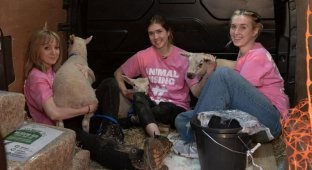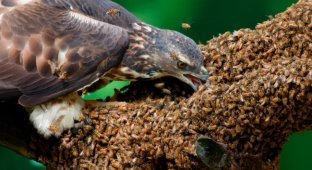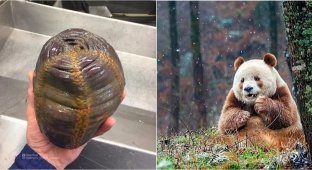Dwarf mongooses: how to survive when you are the smallest predator in the savannah? (11 photos)
Being small and cute in the wild is not worth it. Every first person is interested in you solely for gastronomic purposes. And the life of dwarf mongooses is a complete mess. They are the smallest predatory mammals in Africa. The only thing that saves them from extinction is the power of friendship. 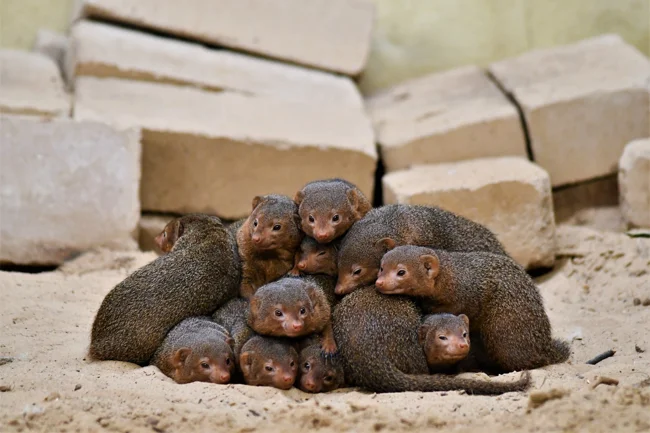
Dust bunnies in the corner of your room.
Yes, that's right, just like in the cartoon about cartoon ponies. One dwarf mongoose in the field is not only not a warrior, but a light snack for every passing crocodile. An adult animal is a brown-red lump of fur weighing a maximum of 300 grams. Any larger predator: from birds and snakes to jackals and hyenas will gobble it up as a warm-up before the main course. 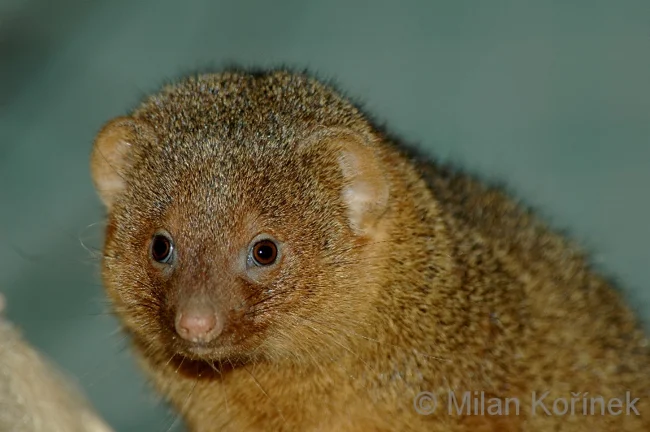
When your eyes run wide from the number of dangers that await you.
To survive, the fluffy balls unite. An organized flock consists of 10-30 tails. Usually, an abandoned termite mound becomes the base for the family. There are many of these in the middle of the sun-dried prairies of East Africa. Fortresses built by insects protect against bad weather and temperature changes. And not a single large predator can get through the narrow holes! 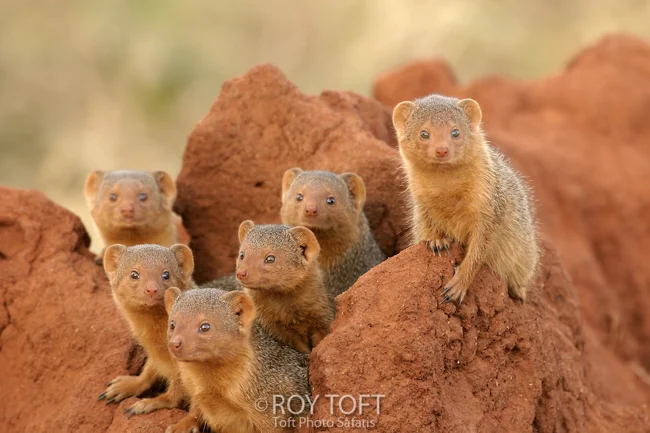
Pay attention to the powerful claws. With them, mongooses dig passages underground, expanding the holes. After all, termite mounds were originally designed for insects, not animals!
The matriarch, the oldest and most experienced female, rules the pack. In second place is her partner, the largest and strongest male. But the real center of the small community is the puppies. All of them are princes and princesses: only the ruling couple is allowed to give birth in a pack of dwarf mongooses. That's why the babies are bathed in affection and love. All members of the pack take care of them: parents, older siblings, and even visiting males. 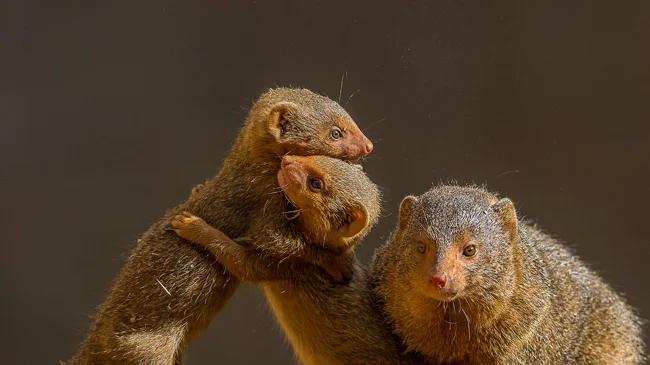
As you know, hugs are the best cure for melancholy.
The first 2-3 weeks, the babies do not leave the nest. They are looked after by a nanny, most often an older sister from the previous litter. When the puppies are born, all the females in the colony produce milk. In this way, the daughters help the mother feed the new batch of offspring. 
— Is it immoral to breastfeed your brothers and sisters? — Oh, come on, we're not people.
To be fair, babies start helping their families as early as their first month of life. Young mongooses go hunting with adults. And it's not easy for the little ones to get food — they're so small. The little animals track down fireflies and cockroaches, and fearlessly fight scorpions and centipedes. Some even attack young snakes and steal eggs from chicken coops! The animals hunt strictly alone, so that a predator can't cause too much damage to the pack. 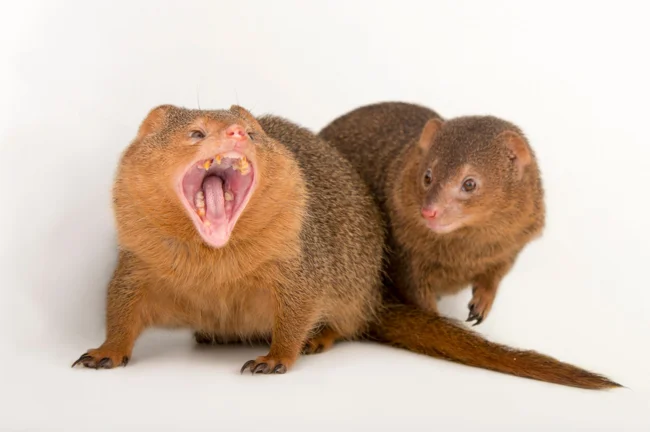
Don't touch my brother, you big hairless guy!
A sentry mongoose will guard those members of the pack that remain in the nest. Its mission is simple: to look in all directions at once and cry out in case of danger. The guards approach the task responsibly. The observation points are constantly changing and depend on a bunch of factors: from wind speed and visibility to the ratio of land and air predators in a given area. Of course, the observers do not have time to look for food, but grateful comrades will generously share the spoils. 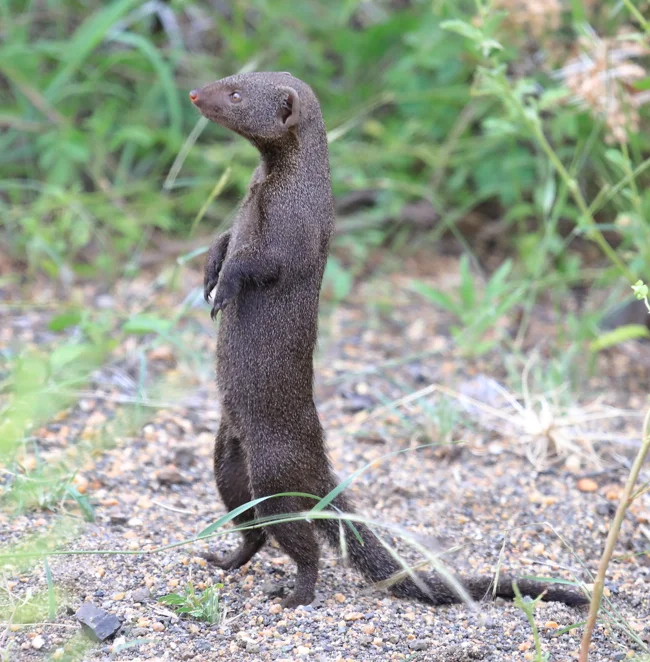
It's easy to spot a sentry mongoose. It stands on its hind legs and nervously looks around.
The strength of friendship between dwarf mongooses is so great that they have established a connection not only with each other, but also with other species! And not just with just anyone, but with hornbills. These large birds can even snack on mongooses themselves! 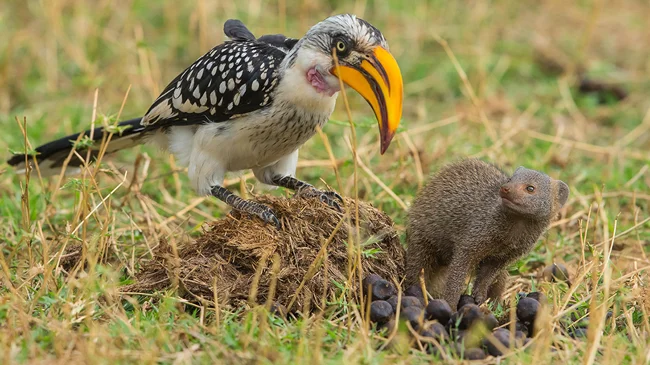
— Hello. — Oh, damn, Stasyan, you scared me!
They can, but they won't. At least two species of hornbills know that it's more profitable to be friends with mongooses than to eat them. Patrolling the territory, the small animal scares away small animals. Insects rise into the air, lizards and snakes leave their shelters. And they all become easy prey for the attentive birds. 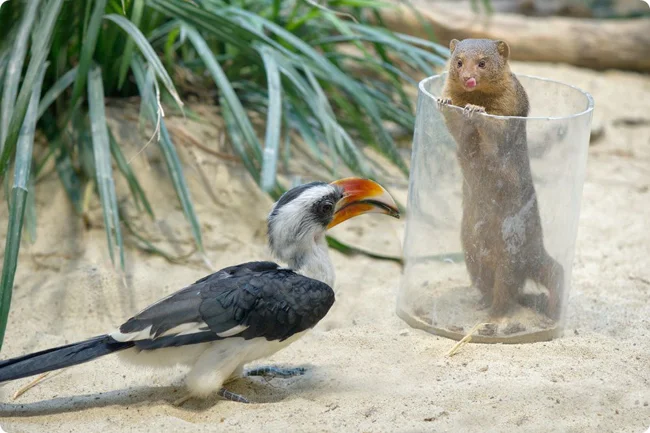
— Weigh 100 grams of mongoose, please. — It came out to 300, will you take it? — Okay, let's go.
Birds value their friendship with their four-legged friends so much that they warn them of impending danger. A tiny mongoose will not see a fraction of what a rhinoceros will notice while sitting in a tree. And when the birds descend to the ground, the mongooses cover their friends, signaling the approach of predators. 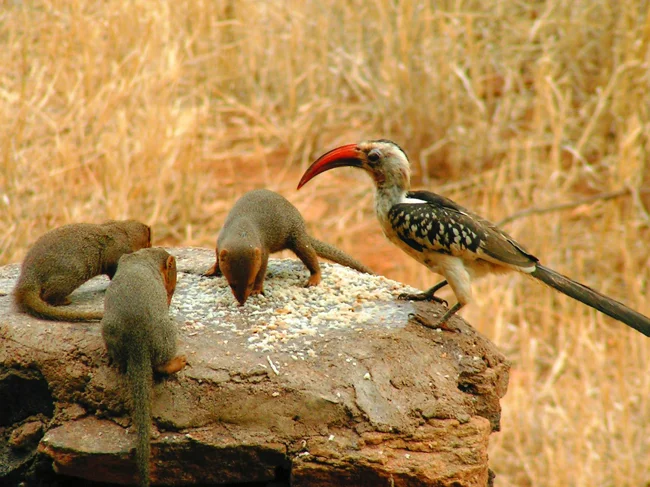
Oh, did they pour some food for you? I'll join in, is that okay?
A strong bond is established between mongooses and birds. Both species synchronize their daily cycles to go hunting at the same time. And in order to understand each other better, the animals and birds develop special signals that are understandable to each of them! And this is beneficial to everyone. In flocks where mongooses are friends with hornbills, the population is larger than in groups without feathered comrades. The number of hornbills living next to mongooses also increases, because it is easier for them to raise offspring. 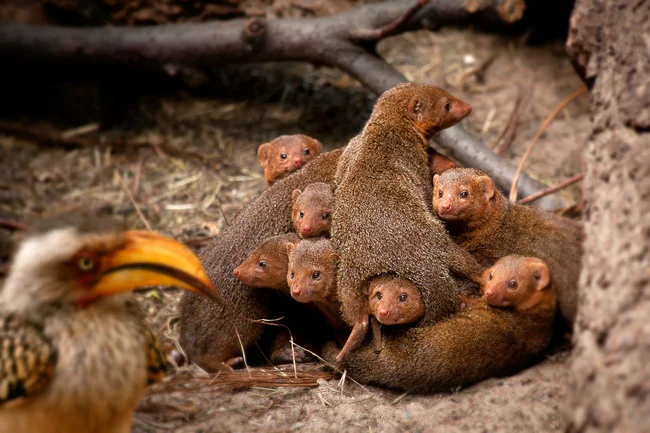
Sometimes dwarf mongooses even try to play with their feathered friends. Unfortunately, hornbills do not have a sense of humor, so the mongoose's jumping only causes them misunderstanding.
In fact, dwarf mongooses are a living personification of the parable about the broom. Alone, they are weak blades of grass. But together the animals create a stable group that can survive until the death of the matriarch. And mongooses live for 15-18 years!










